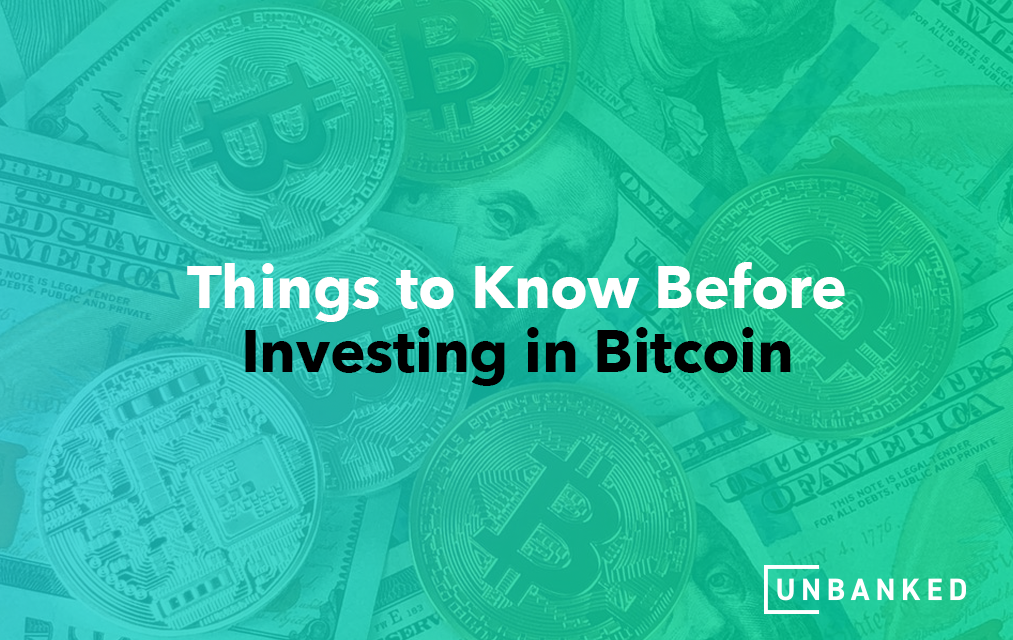With a market cap of over $580 billion, you can see why Bitcoin has become the shiny new investment toy that people with different portfolios look to as a potential money grabber. However, while there is money to be had when investing in Bitcoin, it is a purely speculative investment, given that it’s not a traditional asset.
Going fully into a Bitcoin investment depends on various factors, with your financial goals chief among them. However, another factor you should consider is that Bitcoin has a relatively short history, with most trading involving the digital currency taking place within a small market. While it has been promoted as an effective inflation hedge, similar to gold. However, there is no clear evidence that it can operate as a larger asset class like gold.
What is arguably the most attractive trait of Bitcoin investment is also its biggest drawback, its volatility. Bitcoin has been a winning investment for many people due to its price history, with high five-figure values constantly attracting would-be investors. However, the volatility can lead to violent price swings, causing the value of investments to fluctuate randomly. Contrary to traditional stock markets, the Bitcoin market doesn’t include closing bells to stop trades. Bitcoin, like most cryptocurrencies, is fully decentralized, with no middleman involved. While the non-involvement of third parties offer investor more control, it also forces investors to exercise greater caution.
How Investing in Bitcoins Differs From Investing in Currency
Traditional currency prices are derived from open markets and the wishes of the governments that regularly issue the currencies.
Meanwhile, Bitcoin’s value depends solely on the investment amount that Bitcoin investors want to pay. The Bitcoin market is somewhat driven by sentiment, with no limits to how high or low the value can go. As mentioned above, Bitcoin price volatility can equally be a gift and a curse.
Also, Bitcoin is not insured as neither the FDIC nor the SIPC insures cryptocurrency assets, meaning there is no federal protection for digital currency. One advisable investment route for Bitcoin investors to get the most out of their money is to put some of it in a Registered Retirement Savings Plan (RRSP) or a Tax-Free Savings Account (TFSA) alongside your Bitcoin investment so you further diversify your portfolio and improve your risk management.
Bitcoin Has No Intrinsic Value
All Bitcoin transactions are recorded in ledgers that are visible to anyone, known as the blockchain.
The technology is trustworthy due to its ability to prevent hacking and counterfeit information. The Bitcoin database has remained intact since the digital currency was introduced in the late 2000s.
Given that Bitcoin is basically digits in a computer program rather than an actually physical dollar, it doesn’t have any intrinsic value. As mentioned earlier, the price is only determined by what someone is willing to pay for it.
You Need An Effective Way to Cash Out Your Bitcoin
Bitcoin and other cryptocurrencies are kept in a digital wallet which is protected by a set of private keys. You can’t purchase Bitcoin and then use it to shop anywhere you want. You will have to cash out your digital currency into a form of cash that most establishments accept.
With that said, more retailers and e-commerce outlets are accepting Bitcoin and cryptocurrency in general as a form of payment. These entities use payment gateways like BitPay to accept payment and more companies are considering adopting Bitcoin as a payment method or donation as they continue to educate themselves about how digital currencies work.
Learn About Exchanges, the Regulated and Unregulated Ones
There are several valid cryptocurrency exchanges that Bitcoin investors can identify to purchase digital currency.
There are well-regulated crypto exchanges like Coinbase in the United States, Kraken in Europe, and BitFlyer in Japan. It’s easy to sign up for accounts on these crypto exchanges, only requiring you to provide proof of identity to validate that it’s you who’s investing. Additionally, mainstream services allow Bitcoin trading with services such as PayPal and the Cash App from Square Inc., allowing investors to buy or sell Bitcoin directly in their accounts.
There are also unregulated exchanges that you can try if you want to maintain a greater level of anonymity. However, these exchanges are controversial because they put investors at greater risk of having their investments compromised. And these exchanges allow ransomware payments. With exchanges, investors must be mindful of hackers, even with Bitcoin having its share of modern developments and prominent trade stages.
As a result, you should remain vigilant when using crypto exchanges for your Bitcoin transactions. Don’t put too much of your money into exchanges, and don’t leave your crypto in there for long stretches.
Look for the simplest and most secure methods of buying and selling Bitcoin before involving yourself with exchanges or any other investment vehicle.
Want to know more about Bitcoin and other cryptocurrency investment opportunities? Check out our resources to learn more about the best practices of crypto investing.





